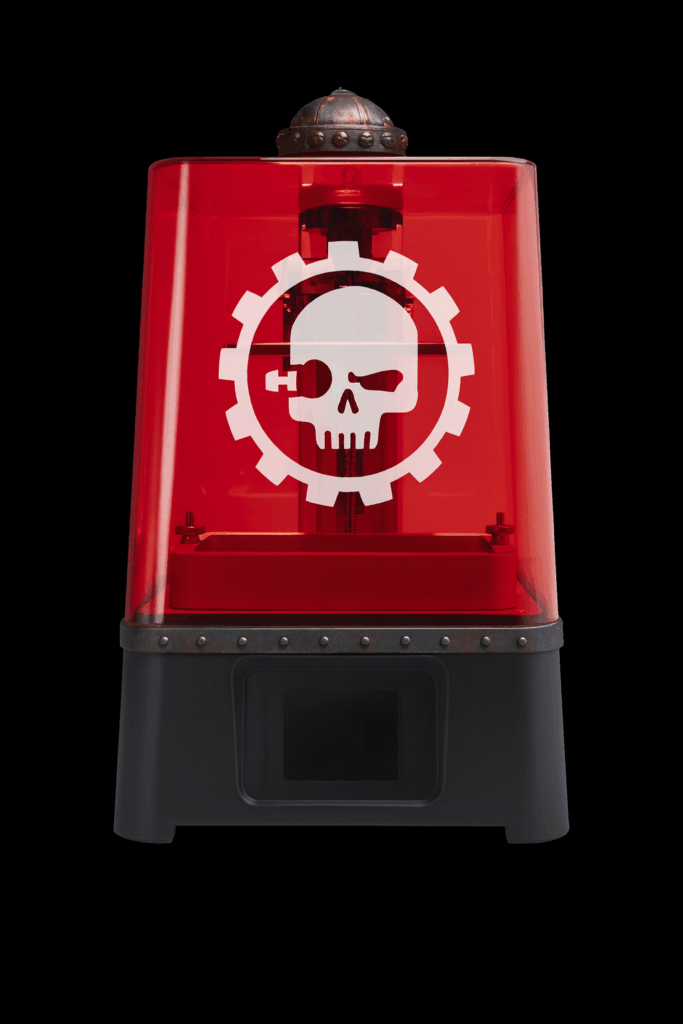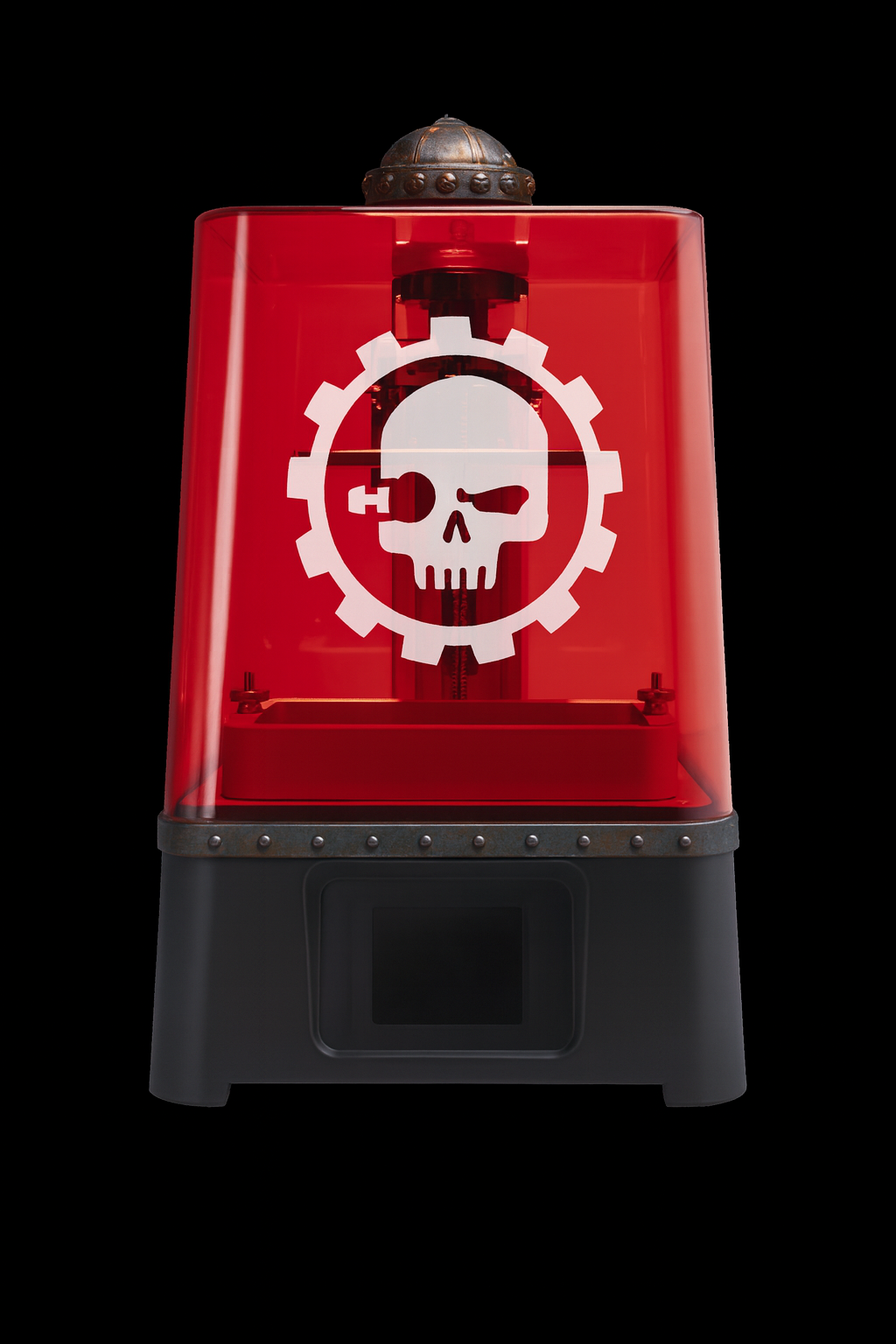Games Workshop has always built its empire on the smell of plastic sprues and the panic of scarcity. Fans line up at stores, fight over stock online, and treat every new kit like a relic. That system worked for decades because physical kits were the only way into the hobby. The Warhammer 40,000 STL leak shattered that illusion.
The leak spread faster than cease and desist letters could fly. Hundreds of files escaped, downloaded over 180,000 times in the first day alone, and the truth became unavoidable. Three-dimensional printing is not a theoretical threat. It is not tomorrow’s danger. It is today’s reality.

Games Workshop now stands at a crossroads. It can keep firing lawsuits into the void, burning goodwill in the process, or it can adapt. The smarter play may be the one hiding in plain sight. Instead of fighting the Machine God, become its high priest. Build a printer. Build the ecosystem. Sell the hobby as a subscription.
The Subscription Forge
The concept is bold but familiar once you strip away the gothic varnish. Create a branded Games Workshop printer. Lock it to an encrypted file catalogue. Wrap the whole thing in a monthly membership.
Picture the launch. A resin and FDM hybrid machine, styled as if it came straight from a forge world. Embossed cog runes, plastic rivets, vents like cathedral windows. More altar than appliance. Not just a cube of resin and cables, but a centrepiece on the hobby desk.
The package could include:
- A GW-branded printer, locked to official firmware.
- A subscription library of encrypted model files.
- Tiered memberships unlocking everything from starter kits to legacy behemoths.
- Integration with local shops, which act as distributors, repair hubs and subscription managers.
Strip away the gothic flavour and it looks less alien. It is the same business model that turned films into Netflix, music into Spotify, and boxed games into Game Pass. The difference is aesthetic. In this case, the machine is part of the immersion.
Why It Makes Business Sense
The financial logic is blunt. One off kit sales are spiky. Subscriptions are smooth. Shareholders prefer smooth.
At present, a Knight sells for around £120. That is a single transaction, once per customer, maybe once per year. Replace that with a £20 subscription and you get £240 per year from the same player. Two Knights’ worth of revenue without the risk of waiting for the next hype cycle.
A crude model looks like this:
- Current model: one Knight kit = £120.
- Subscription low uptake: 100,000 subscribers at £20 per month = £24 million per year.
- Subscription medium uptake: 150,000 subscribers = £36 million per year.
- Subscription high uptake: 200,000 subscribers = £48 million per year.
Now layer in consumables. If each subscriber spends £10 a month on official resin or filament, that is another £12 million with 100,000 users, or £24 million with 200,000. Add in digital expansion packs at £30 each, purchased by even half the subscriber base, and you see another £1.5 to £3 million each time a release drops.
These are back of the envelope sums, but they highlight the shift. Subscriptions transform a volatile, hype-driven business into a recurring revenue model that smooths the peaks and valleys. That is exactly the pattern that excites investors.
Industry Parallels
Other industries show what happens when companies resist change.
Kodak invented digital photography but shelved it to protect film sales. Competitors seized the market. Kodak collapsed.
The music industry tried to sue Napster into oblivion. It succeeded in court but failed in reality. Files spread anyway. Only when streaming made music easier to access than piracy did the industry stabilise.
Games followed the same arc. Discs and cartridges gave way to Game Pass, PlayStation Plus, and digital stores. Revenue became recurring. Libraries replaced one off sales. The result was greater stability and broader reach.
Games Workshop risks being Kodak if it clings to sprues. A subscription printer model, executed well, would make it the Spotify of miniatures instead. The official choice. The convenient choice. The aesthetically branded choice.
The Risks
This path carries obvious danger.
- Overly strict DRM could frustrate fans who expect flexibility.
- Printer quality must be flawless. A flood of broken machines would corrode trust overnight.
- Hardcore printers will always find ways to crack files. Piracy never dies, it only adapts.
- Pricing will be a minefield. Push too hard and fans will revolt.
Yet risk is not inevitability. Each problem has a possible solution. Transparent pricing. Reliable hardware. Community engagement that reassures rather than threatens. These are choices, not fate.
The Cultural Angle
Business logic is only half the story. Warhammer is not just about owning plastic. It is about ritual. Painting deep into the night. Rolling dice across crowded tables. Arguing about rules until everyone agrees to disagree.
A GW printer designed as a relic of the Adeptus Mechanicus would not be a gadget. It would be part of the ritual. As sacred as the brush or the dice. Fans would not only be paying for access to digital files. They would be buying immersion. The act of printing would become a ceremony in itself.
Scenario Modelling
Best case: the printer is reliable, the files are secure but accessible, the pricing feels fair. Subscription uptake is high, piracy slows, and GW stabilises into a predictable, recurring revenue model that doubles or triples income.
Middle ground: the printer works but uptake is modest. The ecosystem generates steady revenue, though piracy persists. Local stores benefit as service centres. The community adapts gradually, some embracing, some resisting.
Worst case: the printer is flawed, DRM is suffocating, pricing feels like exploitation. Fans revolt, piracy spikes, goodwill burns. Games Workshop loses both money and cultural trust.
The numbers show that even the middle ground may be preferable to the endless cost of litigation. Lawsuits spend money without building infrastructure. Subscriptions build infrastructure while generating money. The trade off is clear.
The Future Path
Games Workshop can continue chasing leaks, filing takedowns, and alienating fans, or it can build the forge of tomorrow.
The numbers suggest the latter is lucrative. The history of other industries suggests it is necessary. The culture of the hobby suggests it could even be embraced.
The Machine God provides. What remains to be seen is whether Games Workshop is willing to follow its own lore, accept that the vault is no longer sealed, and print its future rather than fight its past.



No responses yet